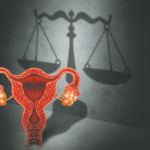Improving JIA Treatment Worldwide
Finally, Waheba Slamang, MBChB, FCPaed (SA), MPhil Paed Rhem (UCT), discussed her work improving health systems for juvenile musculoskeletal disorders in middle- and lower-income countries.
Dr. Slamang explained there is a lack of global guidance and strategic response for juvenile musculoskeletal disorders due to poor infrastructure, underinvestment and cost. These disorders are considered low priority, but because they are chronic, they place a heavy burden on healthcare systems. Dr. Slamang emphasizes the need for more accessible treatment for these disorders is tremendous, with more than a million children in Asia living with juvenile idiopathic arthritis (JIA), and more than 500,000 in Africa.
Access and affordability of medicines for JIA can be improved by adding them to the World Health Organization’s (WHO) Essential Medicine List (EML). Once a medicine has been added to the list, there are processes in place to increase its availability, standardize care, and even formalize cost agreements that make the drug more affordable to patients. But for a medication to be added to the list, the WHO must accept proof that it’s necessary. Dr. Slamang says this has been a challenge with JIA drugs because researchers can’t conduct the same kind of randomized, double-blind studies with children that they can with adults. Without such studies to document the necessity of such drugs as anakinra and tocilizumab for JIA, the WHO has declined to add them to the EML.
Overall, these speakers illustrated the many ways that policy and legislation affect rheumatological practice and equitable access to care. All four speakers urged medical practitioners to get involved with advocacy and to care for patients by working toward structural change on a government level.
Glen K. Rodman is the assistant editor of The Rheumatologist.
References
- Alterio M, Von Davies R, Tobias M, et al. A geospatial analysis of abortion access in the United States after the reversal of Roe v Wade. Obstet Gynecol. 2023 Nov 1;142(5):1077–1085.
- Badger E, Sanger-Katz M, Miller CC, et al. States with abortion bans are among least supportive for mothers and children. The New York Times; 2022 Jul 8.
- Becker D, Olaviarrieta C. Decriminalization of abortion in Mexico City: The effects on women’s reproductive rights. Am J Public Health. 2013 April;103(4):590–593.


